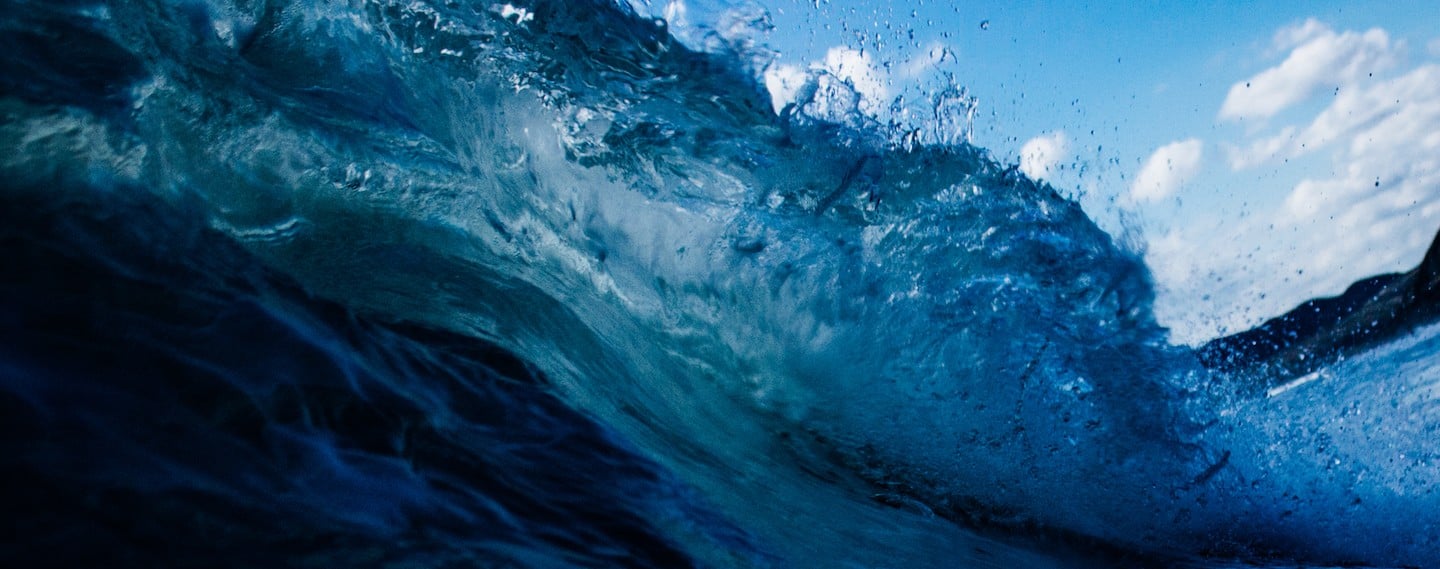
09.25.19
UN Climate Change Report Paints Dire Picture for the Ocean and Coasts
By Surfrider Foundation
Since 1990, the United Nations Intergovernmental Panel on Climate Change (UN IPCC) has been producing reports about climate change impacts. With every report we learn something, and with every report, some world leaders turn a blind eye on the hard science. Today, the IPCC released a special report highlighting how our ocean and coasts are suffering because of climate change. Surfrider is working with global nongovernmental organizations to help raise awareness about this significant report.
The IPCC Special Report on the Ocean and Cryosphere in a Changing Climate is the first-ever global scientific consensus on climate change impacts to ocean and coastal ecosystems—and ultimately the human race.
Climate change is causing devastating impacts in the ocean at an alarming pace. Without momentous climate action, impacts will only become more staggering and irreparable. Our ocean is a sponge and has been “taking the heat” for climate change, absorbing over 90% of the heat and nearly a third of the carbon dioxide from greenhouse gas emissions. The result is an ocean that is warmer, more acidic, starved of oxygen, and less habitable for marine wildlife.
This new report provides in-depth analysis and predictions including:
- Global temperature warming must be limited to 1.5-degrees C in order to protect ocean health and coral reef systems. A 2-degree C increase in global temperatures will completely wipe out coral reefs.
- “Marine heat waves”, a newly discovered phenomenon, are rapidly increasing. These heat waves were first detected in 2013 off the west coast. Currently there is a patch of warm water in the north Pacific that is 7-degrees F warmer than normal. Changes in ocean temperatures this large are disrupting historical fisheries as the fish seek cooler water, threatening the main food source and livelihood of millions of people around the globe who rely on healthy stocks, especially indigenous communities. In some regions, fish catch is already declining, and it is predicted to decline globally by over 20%.
- Melting land ice and glaciers are causing sea levels to rise at an accelerated rate, altering ocean circulation and changing the ocean's chemistry. This threatens ocean ecosystems, coastal communities, and traditional ways of life around the world.
- Coastal flooding will increase as sea levels continue to rise, putting coastal communities and low-lying islands at greater risk. In fact, extreme sea level events that were historically rare (typically once per century in the recent past) are projected to occur at least once per year in many locations by 2050.
- Extreme events like hurricanes and storm surges will continue to be more common and more severe.
- The ocean is becoming warmer at all depths. Tropical and cold-water coral reefs are under serious threat from many ocean changes related to a warming climate.
- The ocean is becoming more acidic and anoxic. Ocean acidification is making it more difficult for shell-building organisms to make a home and decreasing levels of dissolved oxygen in the ocean is creating more low-oxygen “dead zones” where ocean wildlife can no longer breathe.
- The loss of polar habitats and coral reefs will lead to significant biodiversity loss.
- Polar habitats will shrink, threatening traditional ways of life and ecosystems in the Arctic and affecting critical Southern Ocean food webs. As permafrost thaws, it is releasing additional greenhouse gases, further contributing to climate change. In fact, the Arctic is warming twice as fast as the rest of the planet.
Most importantly, the report also highlights solutions to prevent the most severe, irreparable impacts from occurring. Some of these solutions mimic what Surfrider is currently advocating for in terms of climate change mitigtion and adaptation. To implement a strong ocean climate action agenda, we must:
- Substantially reduce greenhouse gas emissions, especially carbon dioxide, which causes ocean acidification. It is imperative that we switch to renewable energy as quickly as possible and completely ban harmful fossil fuel extraction such as new offshore oil drilling. Surfrider is fighting offshore oil drilling and working to bring Community Choice Energy to coastal communities.
- Protect and enhance the ocean's natural ability to store carbon and mitigate climate change by conserving and restoring blue carbon ecosystems, including mangroves, seagrass beds, and salt marshes. These coastal habitats act as a buffer to sea level rise and extreme coastal hazards while also sequestering carbon and providing critical habitat to marine life. Marine and coastal ecosystems can sequester carbon four times better than terrestrial forests. Surfrider has 14 chapters conducting dune restoration and a national Ocean Friendly Gardens program that helps sequester carbon.
- Implement adaptation strategies and increase ocean resiliency. This includes protecting at least 30% of the ocean where marine ecosystems can help buffer climate change impacts to the ocean and coastlines. Adaptation measures help local communities better plan for future sea level rise and extreme weather events. Surfrider has helped establish and protect marine protected areas in US waters, and is actively working in 24 regions and cities to ensure long term, proactive shoreline planning in the face a rapidly changing climate and extreme weather events. Surfrider also publishes a State of the Beach Report that provides recommendations on how states can implement beneficial coastal adaptation measures to respond to unavoidable climate change impacts.
While these findings are dire, we cannot be overly daunted because currently there is an amazing climate action movement mobilizing. Just look at last week's climate strike where millions of people gathered to make their voices heard! We can all take individual actions to curb climate change. And of course, we encourage you to get involved with Surfrider to help local communities mitigate and adapt to climate change. To learn more about Surfrider's climate change work go here and here.

